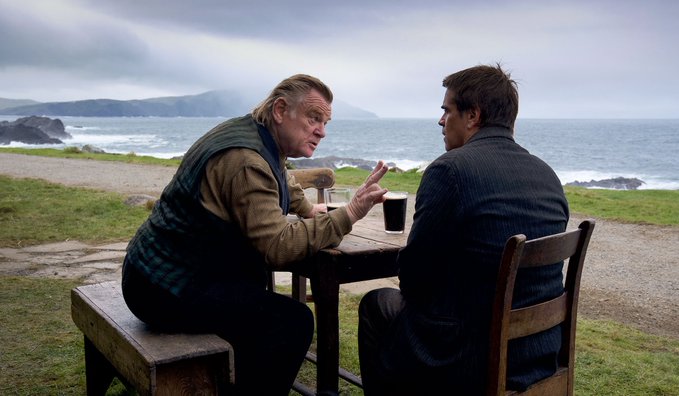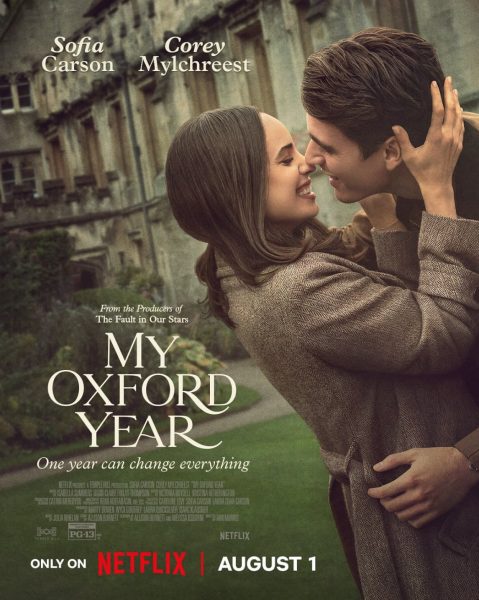“The Banshees of Inisherin” Teaches a Valuable Lesson on Sensitivity
“The Banshees of Inisherin” begins with Pádraic (Colin Farrell), a sheepherder from Inisherin (a fictional Irish island), knocking on the door of his best friend Colm’s (Brendan Gleeson) house. At the same time, day after day, the pair of friends head down to the bar to share a drink with one another. But in the first ten minutes of the film, we find their routine has been disrupted when Colm refuses to turn around and open the door for Pádraic. He is obviously hurt as Colm seemingly out of nowhere decides to ignore him, and spends the rest of the runtime dodging the rejection by trying to find out why it was casted upon him in the first place.
“Banshees” is the latest film from director Martin McDonagh since the release of his critically-acclaimed but divisive “Three Billboards Outside Ebbing, Missouri” in 2017. McDonagh hides a film about the Irish Civil War through the guise of a forcefully broken friendship. It is a completely enjoyable black comedy without knowledge of the historical context the film and its characters exist in. With the added layer, it is a thought-provoking, humanizing and entertaining gem.
In the midst of begging for reasoning, explosions and little-talked about fighting is transpiring on the mainland, across from the people of Inisherin. The not-so-faraway conflict is the Irish civil war, which broke out between two Irish nationalist groups in 1919 until 1921 over Ireland remaining part of the British Commonwealth. The bloodshed between people who had originally fought on the same side arises as the main metaphor of the allegory; Pádraic and Colm are not just two men who will no longer share a beer together — Pádraic experiences a sense of grief and heartbreak as he realizes someone he once believed to be closest to him is actively working against him.
If Colm had told Pádraic he wished to no longer speak to him and Pádraic simply listened, “Banshees” may be considered a comedy only as the request is so forward and eclectic without a reason to accompany it. But Pádraic refuses to go down without a fight (or an explanation). This doesn’t result in Colm being mean to him — Colm half-hilariously and half-terrifyingly makes a promise that he will cut off his fingers, one for every time his ex-friend continues to speak to him. The clear self-threat underscores Pádraic’s desperation and horror at the prospect of a lost friendship; he wouldn’t be suffocatingly pressing Colm if he felt that he had any other choice.
When Colm continues to spend time at the pub with his bandmates instead of Pádraic, Pádraic confronts him. Colm surrenders to his requests and tells him he’d rather live an interesting life making great art and come across as a bad person than spend his time doing useless activities with Pádraic. His debate sparks passion in Pádraic, who is used to the simple life that Inisherin is so good at providing to its inhabitants. Pádraic, who values ease and being kind above all, disappointingly asks his old friend, “you used to be nice, or did you never used to be?”
In the humiliation Pádraic experiences, he befriends the other local island outcast, Dominic, who is wonderfully played by recent Oscar-nominee Barry Keoghan. The friendship between Dominic and Pádraic has plenty of moments of banter and silly storytimes, but the despair over the few true connections they have to the other people of the island shine through in every interaction they share; they are each other’s last resort.
The wailing, animals and coast create a faraway and forgotten landscape for a man of the same qualities. “The Banshees of Inisherin” intertwines the life of a simple islander with the narrative that surrounds him, giving audiences a lesson in the sensitivity and principles of humanity and history alike.

Lauren Lombardi is a junior from Long Island, N. Y. majoring in communications and minoring in film. Lauren began as a contributing writer for The Fordham...













































































































































































































